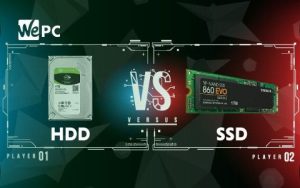
With advancements in technology, the world of gaming has undergone a rapid transformation. From immersive virtual reality experiences to expansive open-world landscapes, games have come a long way. One of the latest innovations in gaming technology is the integration of blockchain in virtual real estate, revolutionizing the way players interact and trade within virtual worlds.
What is Blockchain?
Blockchain is a decentralized digital ledger that records transactions across multiple computers, ensuring transparency and security. Initially used in the cryptocurrency space, blockchain technology has expanded its capabilities and found its way into various industries, including gaming.
The Rise of Virtual Real Estate
Virtual real estate refers to the ownership and trade of digital land and properties within a virtual environment. Games like Minecraft, Second Life, and Decentraland have created vast virtual worlds where players can explore, build, and interact with others. These virtual environments have their economies, and virtual real estate has become a valuable asset.
The Benefits of Blockchain in Virtual Real Estate
1. Ownership and Asset Control: With blockchain integration, players have true ownership of their virtual properties. The transparent nature of blockchain technology ensures that ownership records are unalterable and publicly accessible, preventing fraud and disputes.
2. Immutable Ownership History: Blockchain serves as a permanent ledger, documenting the entire history of ownership for each virtual property. This feature boosts the confidence of potential buyers, as they can verify the authenticity and ownership records before making a purchase.
3. Secure and Transparent Transactions: Blockchain eliminates the need for intermediaries, such as game developers or marketplaces, during property transactions. Smart contracts, powered by blockchain, facilitate peer-to-peer transactions, ensuring transparency and security for both buyers and sellers.
4. Interoperability between Virtual Worlds: Traditional games often lock players within their respective ecosystems. However, with blockchain integration, virtual real estate can be transferred across different games or platforms seamlessly. This interoperability increases the value and utility of virtual properties, as they are not limited to a single game.
Blockchain-Based Virtual Real Estate Games
Several blockchain-based virtual real estate games have gained popularity in recent years:
Decentraland
Decentraland is a decentralized virtual world powered by blockchain technology. It allows users to own, build, and trade virtual land known as LAND. Users can create various experiences on their properties, including games, art galleries, and virtual marketplaces. The ownership records are stored on the blockchain, guaranteeing secure transactions and ownership rights.
The Sandbox
The Sandbox is a voxel-based virtual world where players can create, own, and monetize their gaming experiences. It leverages blockchain technology to enable players to trade virtual land and in-game assets known as ASSETs. The Sandbox offers a user-friendly platform for creating games and experiences, attracting content creators and gamers alike.
Cryptovoxels
Cryptovoxels is a virtual world reminiscent of the early days of the internet. It allows users to buy, rent, and sell virtual land and build various types of content. Each parcel of land is an NFT (Non-Fungible Token) stored on the Ethereum blockchain, ensuring secure and immutable ownership records.
The Future of Virtual Real Estate within Games
The integration of blockchain in virtual real estate is still in its early stages, but the potential for growth is immense. As more games adopt blockchain technology, players will have the opportunity to truly own their digital assets and trade them freely across different platforms. Virtual real estate will become a valuable investment, and developers will continue to explore innovative ways to enhance the gaming experience.
Conclusion
The integration of blockchain in virtual real estate within games has transformed the way players interact and trade within virtual worlds. With increased ownership rights, secure transactions, and interoperability between games, blockchain technology has brought a new level of transparency and value to virtual real estate. As the industry continues to evolve, virtual real estate is poised to become an exciting avenue for investment and imagination in the world of gaming.


